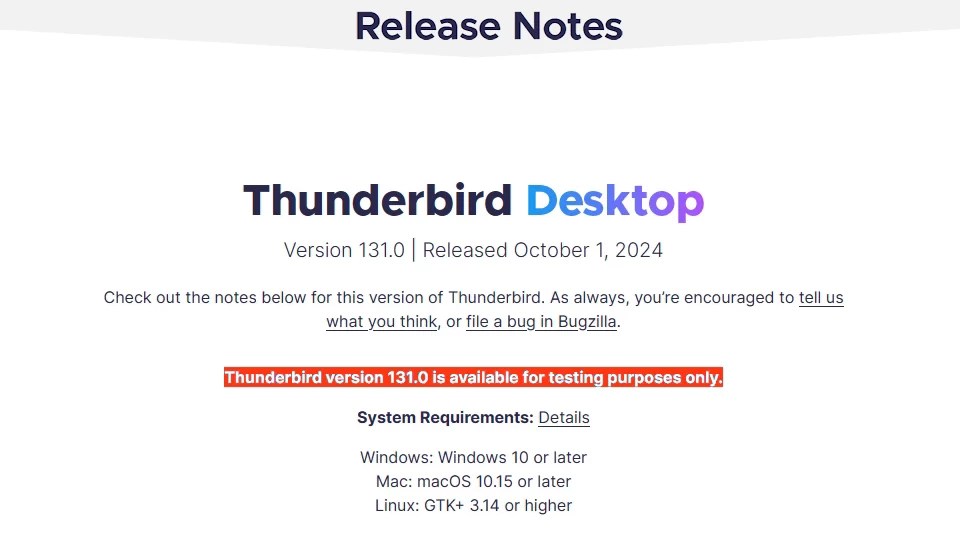As of last month, Thunderbird — which has been operated by Mozilla subsidiary MZLA Technologies since 2020 — is finally done with its notable transition from version 115 to version 128.
September 5 gave us Thunderbird 115.15.0, which was the last release of version 115 (“Supernova”) and also the last version to still run on Windows 7, Windows 8, macOS 10.12, macOS 10.13, and macOS 10.14.
But if you thought things were going to be simple again, you were wrong. Going forward, Thunderbird will have four release channels on its download page, similar to what we see with Firefox.
Thunderbird’s four release channels
The main release channel, called ESR (Extended Support Release) channel, is how Thunderbird has been operating so far, with annual feature updates and monthly security updates. All users on modern operating systems are on this channel by default, with the latest version being Thunderbird 128.3.0esr (“Nebula”).
The new Release channel, whose version numbers follow the pattern set by Firefox, will start with Thunderbird 131 (without “esr”). The Release channel will be delivering security updates and new features and improvements on a four-week schedule. You won’t find the Release version on Thunderbird’s download page yet because Thunderbird 131 is currently only available to testers.
There’s also the Beta channel, which puts out unstable versions for testing purposes. (Unstable means that there could be bugs, crashes, and malfunctioning features that still need to be fixed.) Beta versions are released every four weeks for testing, which then become Release versions If they pass.
Finally, there’s the Daily channel, which is the most unstable and experimental of all the versions. Equivalent to Firefox nightly builds, Thunderbird Daily sits on the cutting edge of Thunderbird development and has yesterday’s newest features and latest bugs.
Note: Only Thunderbird’s ESR and Release channels are meant to be used on a day-to-day basis for actual productive purposes. The Beta and Daily channels are strictly meant for testing and development, but are available in case you want to give them a whirl. Use the Beta and Daily versions at your own risk.
Across both Thunderbird versions 131 and 128.3.0esr, the developers have fixed at least 11 security vulnerabilities, with most of those existing in both versions. (Thunderbird inherits many of the vulnerabilities in Firefox, whose code base also forms the basis of Thunderbird.)
In Thunderbird 131, the developers have also fixed 30 other bugs, while Thunderbird 128.3.0esr has significantly fewer issues.
This article originally appeared on our sister publication PC-WELT and was translated and localized from German.





